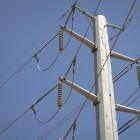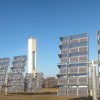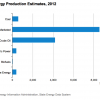Background
Austin Energy is a public utility company in Texas with more than 400,000 customers in Austin and parts of Travis and Williamson Counties, providing service to nearly 1 million people. The company is publicly owned and returns annual dividends to the City of Austin that amount to about 25 percent of the general fund. Austin Energy uses nuclear, coal, natural gas and renewable energy sources to generate power. It also boasts the largest green building program in the country and offers a solar rebate program to incentivize customers to install solar panels in homes and businesses.
Austin Energy has been criticized for raising customer costs in order to meet its renewable energy goals. Some critics have even called the utility a monopoly. Like many municipalities in Texas, the City of Austin does not allow residents to choose another power company that may offer lower rates. The Texas legislature considered a bill in the 2011 session that would have deregulated electricity in Austin, though the bill did not go up for a vote. Retractors of the bill noted that it only targeted Austin and not other cities in Texas with similar utility programs.
Austin Energy is considering changing its rates permanently in 2012. Representatives said the change will accommodate the rising costs of materials and employee salaries.
Austin Energy also faced controversy in early 2011, when many homes and businesses in the Austin area lost power during February’s rolling blackouts that left nearly a million Texans in the dark. The blackouts occurred during the coldest week of the year when record numbers of customers were heating their homes. Austin Energy and Austin’s City Council are looking into the matter.





